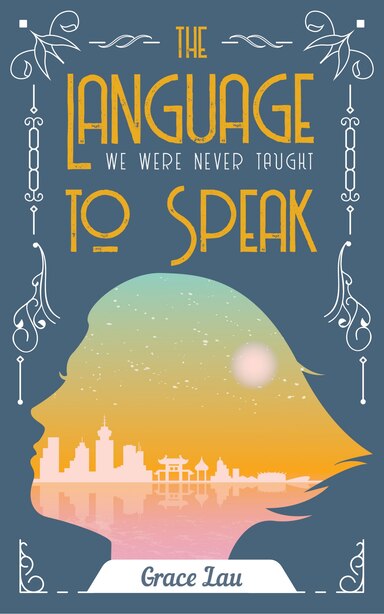
The Language We Were Never Taught to Speak
Grace Lau
Guernica, 2021
Review by Kate Gorton
If it were possible to titrate Grace Lau’s stunning poetry debut down to one line from one poem, this would come closest: “Where is me?” (“Going Home”).
Of course, it’s not that simple. The Language We Were Never Taught to Speak (Guernica, 2021) is a tender, sensuous collection that explores a myriad of themes with care. Yet no theme is more deeply plumbed than that of the chasm between immigrant parents and their children: more specifically, the experience of growing up in Canada as the child of Chinese immigrants.
Throughout the collection, Lau weaves together references from pop culture with her own ancestral roots, creating satisfying parallels alongside poignant dissonance. The collection’s opening salvo sets the tone for this masterful balancing act:
When a Chinese drag queen
finally
sashays into the Drag Race werkroom
our ancestors clutch their jade pendants
but no one says anything
because our men have been painting their faces and
singing in soprano since
the Six Dynasties.
(“When Yuhua Hamasaki Went Home”)
In this, the very first stanza of the book, we see modernity and history, queerness and aversion to queerness, all living together on the page. The juxtaposition of these themes bubbles up frequently, in tongue-in-cheek poems like “In a Silicon Valley Coffee Shop, Elon, Mark, and Jeff Talk about Their Dreams” and “21st-century Hustle Culture: Interim Research Paper.” Lau plays expertly in the messy gray between forms and realities, between languages and cultures. Through these juxtapositions we see what it’s like to live intersectionality: the beauty and the struggles. It is in this space between the black and white that the collection makes its home.
Speaking of home: Lau’s work is a tireless pursuit of the word and how complicated it can be for an immigrant. Time and again, the speakers grapple to find a place that is theirs in the world:
I touch home in a six-by-four photograph
I hear home in a T&T Supermarket
I see home in Chinatowns that feel the teeth
of the years,
but I can never
go home.
(“Going Home”)
It is in stanzas like this that we see the pain of growing up between two worlds and never quite feeling enough for either. Lau also draws parallels between this sense of alienation from her motherland and being queer in a heteronormative world:
My lover tells me to love
myself more. My mother tells me to love God
more than this,
but love has always been the mother
of my grief.
(“My Grief is a Winter”)
Lau paints painful experiences with a light hand; despite the well-realized heartache, the work never tips into melodrama. And there is joy in these pages, too, especially in the form of food. Lau is at her strongest when bringing meaningful meals to life. As she explores the divide between herself and her older relatives, herself and the home she can never truly know, she finds comfort in the food they share: “honeyed / chicken wings, scrambled eggs with preserved veggies… every dish / a morsel of earned luxury, a lesson / in surviving / on silence” (“An Old Magic”).
In this moment and so many more throughout the collection, food is communion, apology, forgiveness, and everything left unsaid that a child longs to hear. It is the one language that people from different times and spaces can share. And if your stomach grumbled reading that stanza, you aren’t alone. Dig into “3 a.m. Communion” or “Ginseng, Winter Melon, Lotus Root” for more beautiful food writing.
I can’t speak to how authentic Lau’s collection is to the queer, Chinese-Canadian experience; I’ll leave that to reviewers who best understand this unique point of view. But I can say that the poems in The Language We Were Never Taught to Speak are at turns heart-rending, funny, and luscious. Just about anyone can find solace among these stanzas about restorative love, complicated family relationships, and a perpetual longing to find oneself. On a continent of immigrants and the descendants of enslaved and displaced people, Lau’s words are universal and carry much-needed catharsis.
Kate Gorton is a writer and book reviewer. Her reviews can be found at Autostraddle.com and The Rupture magazine. Her short stories have been published by PRISM International and Arcturus magazines, among others. She lives and writes in Massachusetts, on the East Coast of the United States.